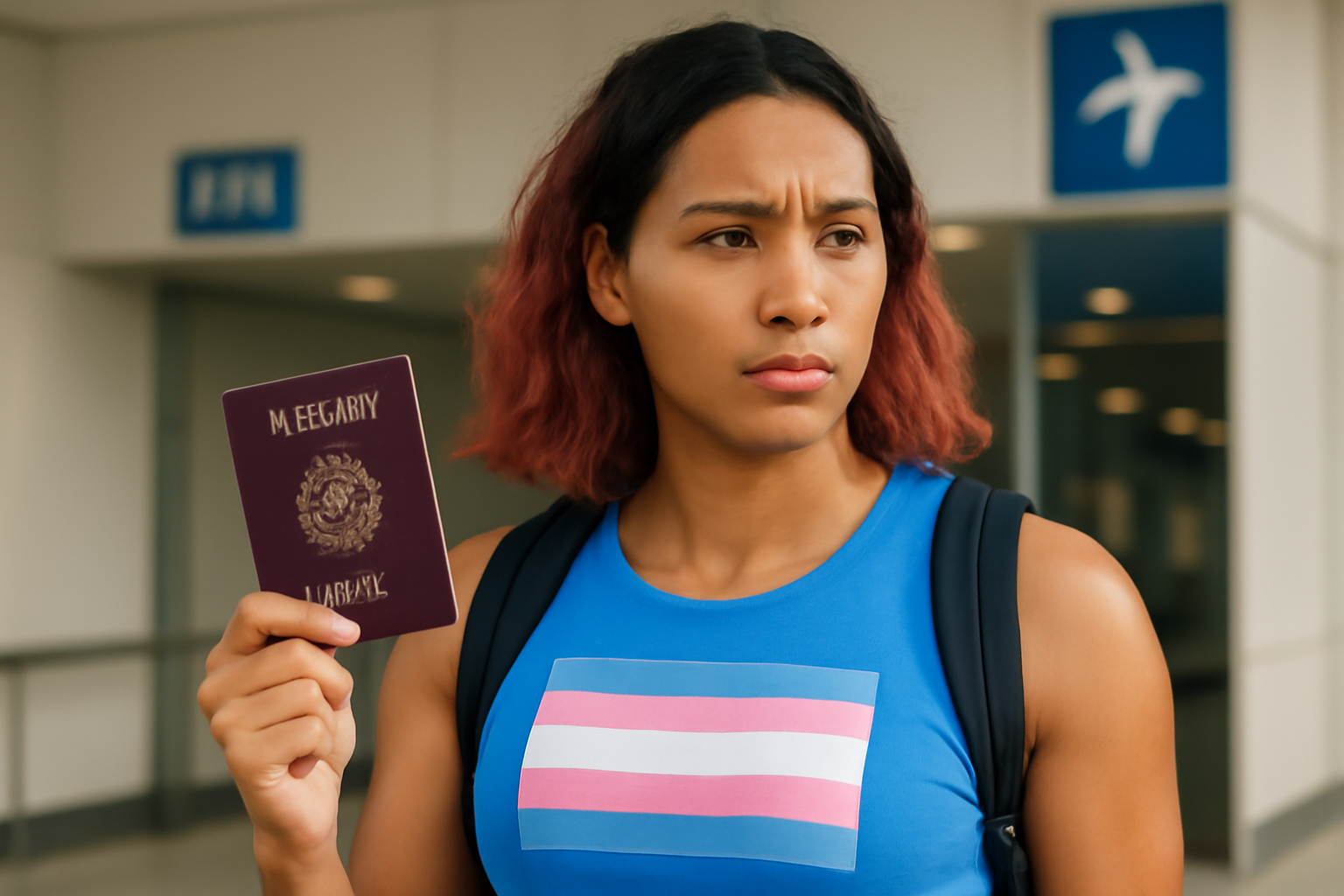
In a surprising and controversial move, it has been announced that new travel policies will significantly impact transgender athletes seeking to enter the United States. This development has sparked a wave of discussion and concern across various communities, particularly among LGBTQ+ advocates and allies who view this decision as a step back in the fight for equality and inclusion.
Transgender individuals, especially athletes, often face unique challenges and barriers, and these new restrictions add yet another layer of difficulty. The policy, which comes from recent administrative decisions, imposes strict entry regulations that effectively bar transgender athletes from traveling to the United States for competitions or events. Many are questioning the motives and implications behind this decision.
Impact on Transgender Athletes
Transgender athletes have been striving for acceptance and recognition within the international sports community for many years. Their participation in sports not only provides personal fulfillment but also serves as a powerful statement of inclusion and diversity. However, the new policy has raised significant concerns about fairness and equality, with many sports organizations and human rights groups condemning the move.
The impact of this decision is far-reaching. For many athletes who have dedicated their lives to training and competing at the highest levels, the ability to travel and participate in international competitions is crucial. This policy not only hampers their athletic careers but also limits their ability to share their talents and experiences on a global stage.
Community Reaction
The reaction from the LGBTQ+ community and its allies has been swift and vocal. Activists and organizations have expressed their outrage, arguing that these restrictions are antithetical to the principles of equality and human rights. Many see this as a targeted attack on transgender individuals, further marginalizing a community that already faces numerous societal challenges.
Social media platforms have seen an outpouring of support for transgender athletes, with hashtags like #LetThemPlay and #TransRightsAreHumanRights trending as individuals and organizations rally to support those affected. Online petitions and calls for policy reversals have gained traction as people from all walks of life join the fight against these new restrictions.
Legal and Ethical Considerations
From a legal standpoint, challenges to these restrictions are already being mounted. Legal experts argue that the policy could violate international human rights agreements, and discussions about the ethical implications continue to unfold. The question of whether such a policy stands up to scrutiny under existing laws and conventions is a hot topic among legal professionals and human rights advocates.
Ethically, the decision raises questions about the values that guide policies affecting marginalized groups. The move has been criticized for not considering the dignity and rights of transgender individuals, prompting debates about how governments can better support inclusion and diversity.
Looking Forward
As the situation develops, many are hopeful that continued advocacy and dialogue will lead to a reconsideration of these restrictions. In the meantime, sports organizations and LGBTQ+ advocacy groups are working tirelessly to support affected athletes and push for policy changes.
Transgender athletes and their allies are determined not to back down, using this challenge as an opportunity to further the conversation about inclusion and rights in sports and beyond. The resilience and strength of the community continue to shine, inspiring others to join the movement for equality and justice.
Ultimately, this development highlights the ongoing struggle for transgender rights and the importance of standing in solidarity with those who face discrimination and exclusion. By amplifying voices and advocating for change, there is hope that future policies will reflect the values of inclusivity and fairness for all individuals, regardless of gender identity.
Related Posts
Triumphant Trans Woman Wins Legal Battle and Inspires Others to Stand Up for Their Rights
Breaking new ground: a landmark victory in transgender rights After battling in courtrooms and enduring endless challenges, Diana Portillo, a transgender woman, has secured a monumental victory in her decade-long fight against workplace discrimination. The result? Nearly $1 million awarded in a historic settlement. But this isn't just a win on paper—it represents a powerful precedent in combati [...]
Pride Month in Latin America: Protests and Demands for Equality
**Celebrating Pride and advocating LGBTQ+ rights in Latin America** Pride Month in Latin America was a lively mix where celebration met activism. Communities united, not just throwing a party but making a stand—demanding equality and pushing governments toward better protection and rights recognition. Throughout Latin America, pride events erupted in marches and cultural displays, each with a c [...]
Transgender Erasure Actions Implemented by National Park Service
```html Trump administration's impact on national park service and transgender recognition The Trump administration made notable moves in undermining transgender representation, which included directing agencies like National Park Service not include "T" and "Q" when they refered “LGBTQ” in any official communication. This move seems part a broader plan by this administration aimed at reducin [...]